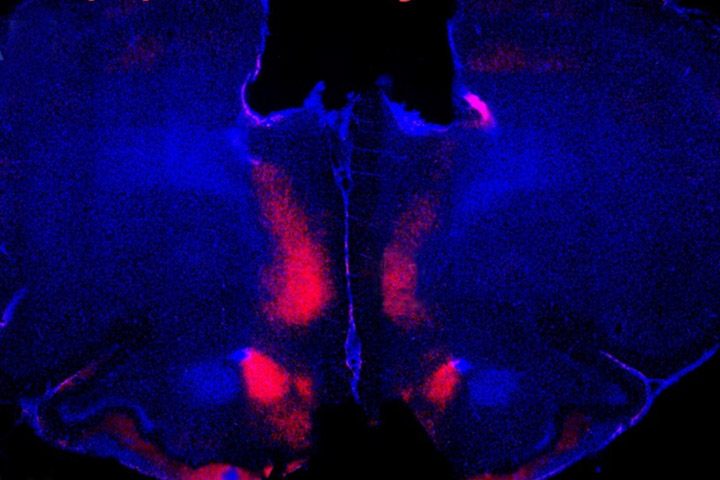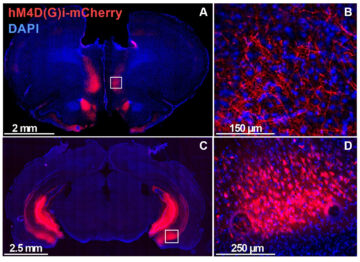
Ventral hippocampus provides contextual information to prefrontal cortex to regulate decision making.

Every day we make decisions based on internal goals and on the expectation that a given action will lead to goal achievement. Such ‘goal-directed’ behaviour is critical for adapting to our environment and is defined as an intention to act that is driven by knowledge of both the causal relation between an action and its associated outcome, and the value or current desirability of that outcome. Much research has been dedicated to understanding the neurocognitive bases of goal-directed behaviour. Yet, the influence of context on this behaviour is not well understood.
Contexts, defined as the environmental cues that surround a learning experience, have a strong influence on behaviour. Indeed, most animals are highly efficient at recognising their surrounding environment. Our environments signal the information to which we should attend and can also indicate the appropriate response or action. In this paper, we combine principles from Experimental Psychology and Neuroscience to explore how environmental context can modulate goal-directed action and the role of the hippocampus (HPC) in this modulation. We specifically consider a situation where the context itself acts as a predictive cue and enters into associative competition with goal-directed actions.
We first used lesion and chemogenetic approaches to show that perturbation of ventral HPC, but not dorsal HPC, attenuates sensitivity to changes in action causality. We then tested the hypothesis that this reduced sensitivity was due to an inability to discern the relative validity of the action compared with the context as a predictor of reward. Using latent inhibition and Pavlovian context conditioning, we confirm that adapting to a degradation of the causal action-outcome contingency relies on intact context-outcome learning, and show that this contextual learning is indeed dependent on ventral HPC (and not dorsal HPC). Finally, we show that chemogenetic inhibition of ventral HPC terminals in the medial prefrontal cortex impairs both action-outcome contingency degradation and context-outcome learning.
These results implicate a hippocampo-cortical pathway in adapting to changes in action causality and indicate that the psychological basis of this deficit is an inability to learn the predictive value of the context. Overall, these results show that the hippocampus, mainly through its ventral part, supports the contextual modulation of goal-directed behaviour (see also Piquet et al., 2023, European Journal of Neuroscience). This research highlights the role of context in acquired behaviour and emphasises the importance of considering the influence of environmental context when studying action selection and choice behaviour.
This work was led by Shauna Parkes in the “Decision and Adaptation” team at the INCIA.
Reference
A hippocampo-cortical pathway detects changes in the validity of an action as a predictor of reward
Robin Piquet, Angélique Faugère, Shauna L. Parkes
Univ. Bordeaux, CNRS, INCIA, UMR 5287, 33000 Bordeaux, France
14 December, 2023
Current Biology
https://doi.org/10.1016/j.cub.2023.11.036
See also commentary
Context learning: Dividing up the camp
https://doi.org/10.1016/j.cub.2023.11.051
Last update 21/02/24
